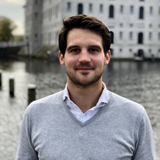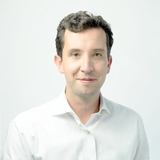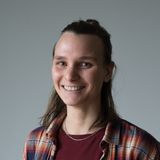During the fourth and last Solar Lecture by The Solar Biennale we will explore solar through the lens of the built environment. How will our future cities look like and function when all surfaces are harvesting energy from the sun. Every surface will become an active surface that powers its surroundings. Will we consider a building or city to be broken if it doesn’t generate its own energy? Solar will be a building block and be treated like a brick, something that is essential and is part of the assembly of the building. It won’t be just a facade or something that is added on. But as It will be integrated and part of its design. How will this work?
The sun, our source of life, has become the cheapest source of energy today. Yet designing a fossil-free world for all, powered by the sun, requires more than technocratic solutionism and one-size-fits-all panels. The Solar Biennale envisions and critically reflects on the future of solar energy in a series of 4 Solar Lectures at Pakhuis de Zwijger.
Learn more about the Solar Biënnale here.
About the speakers
Marjan van Aubel (born in 1985) is a Dutch award-winning solar designer who combines sustainability, product design and technology to create environments with a positive future. She is currently writing a book on the Future of Solar Energy and started the Solar Movement with first outcome; a Solar Biennale in 2022. In October 2021 the World Expo in Dubai will showcase her newest Solar Roof for the Netherlands Pavilion. Van Aubel’s most notable works are ‘Current Table’ and ‘Power Plant’; she also recently launched her first solar design product, ‘Sunne’ – a solar light that mimics the sun. Her work is part of permanent collections of museums such as MoMA New York, the V&A London and Boijmans van Beuningen in the Netherlands, to name but a few. She has collaborated with global brands such as Cos, Timberland and Swarovski with the aim of accelerating global energy transition to solar.
As program developer Urban Energy, Paul Voskuilen is responsible for exploring, initiating and developing relevant energy projects in the Amsterdam Metropolitan Area. He connects the energy transition challenges of the region to innovation practices, competencies, and projects, to find insights and solutions that create a real added value for the city and its people. The aim is to create insights and solutions that can help citizens, policymakers, and entrepreneurs, make better (investment) policy or decisions and inspire new businesses and products. In doing so, we strive to bring solutions to those challenge owners that have a hard time sleeping until the challenge is solved. Prior to AMS Institute, Paul worked with AMS Institute’s collaboration partner Amsterdam Smart City (ASC). AMS Institute and ASC are strongly connected and share a strong belief that collaboration on the urban challenges is key and needs great care when aiming for impact. He believes that with starting AMS Institute, the City of Amsterdam showed long term commitment to innovation, but also expects understandable answers and solutions to complex questions, as for example in the energy transition. A challenging and exciting premise.
Tom Minderhoud is a Senior Architect and Associate at UNStudio (www.unstudio.com), a global architecture practice based in Amsterdam. He has more than 15 years of experience working globally on a range of award winning major projects, mainly focusing on improving the quality of life in inner city urban locations. In his capacity as architect, he has also been involved in Photovoltaic (PV) research since 2010, working closely with scientists, engineers and the solar industry to promote freedom of design and an integrated approach to PV in the built environment. In addition to realizing building integrated PV facades, he has patented ideas on a full color photovoltaic façade material that is now commercially available on the market through the Dutch solar start-up SolarVisuals (www.solarvisuals.nl).










